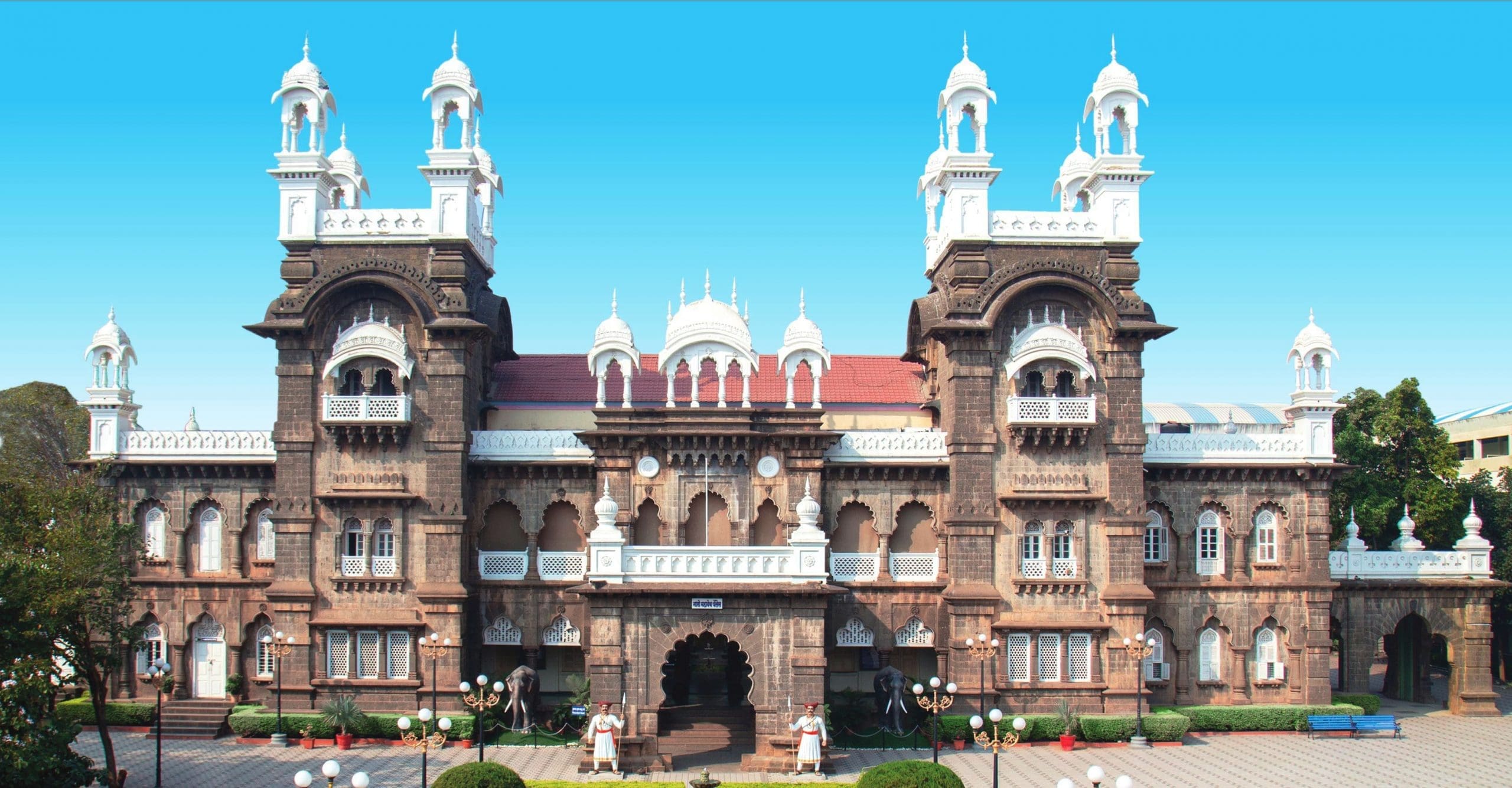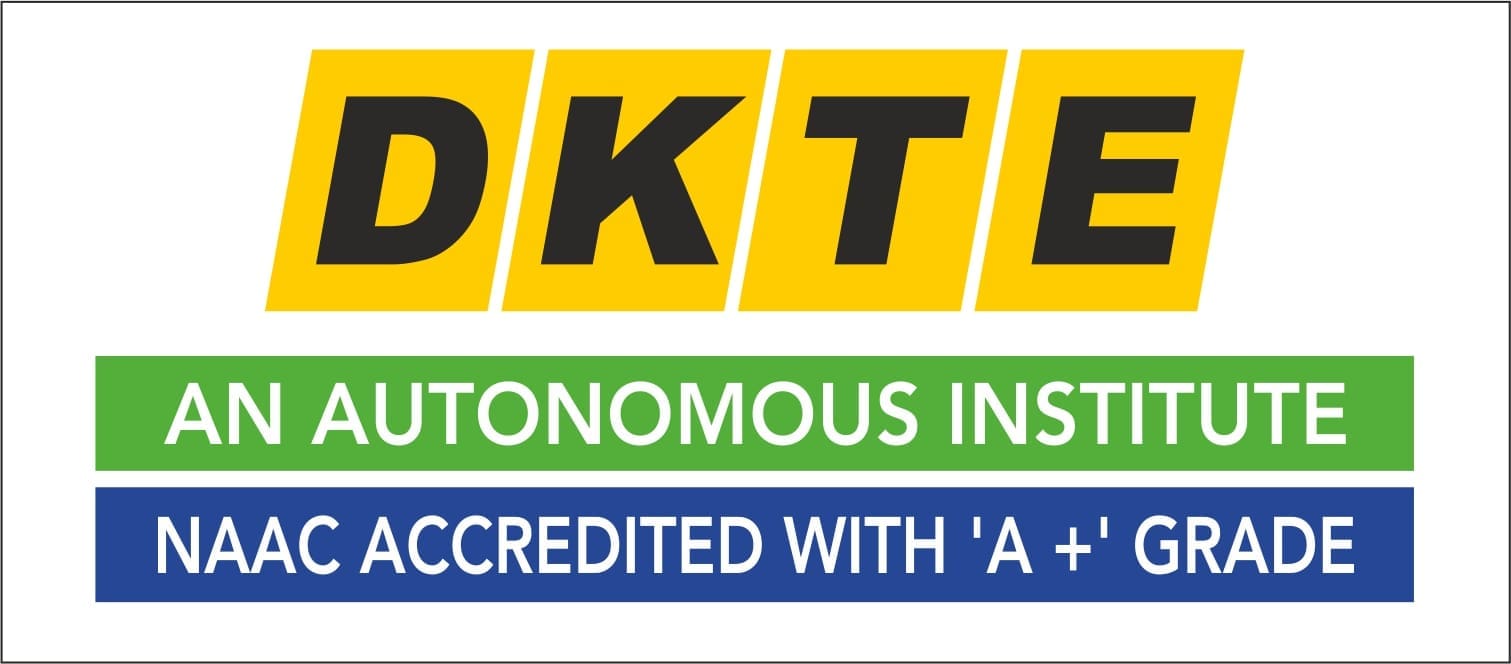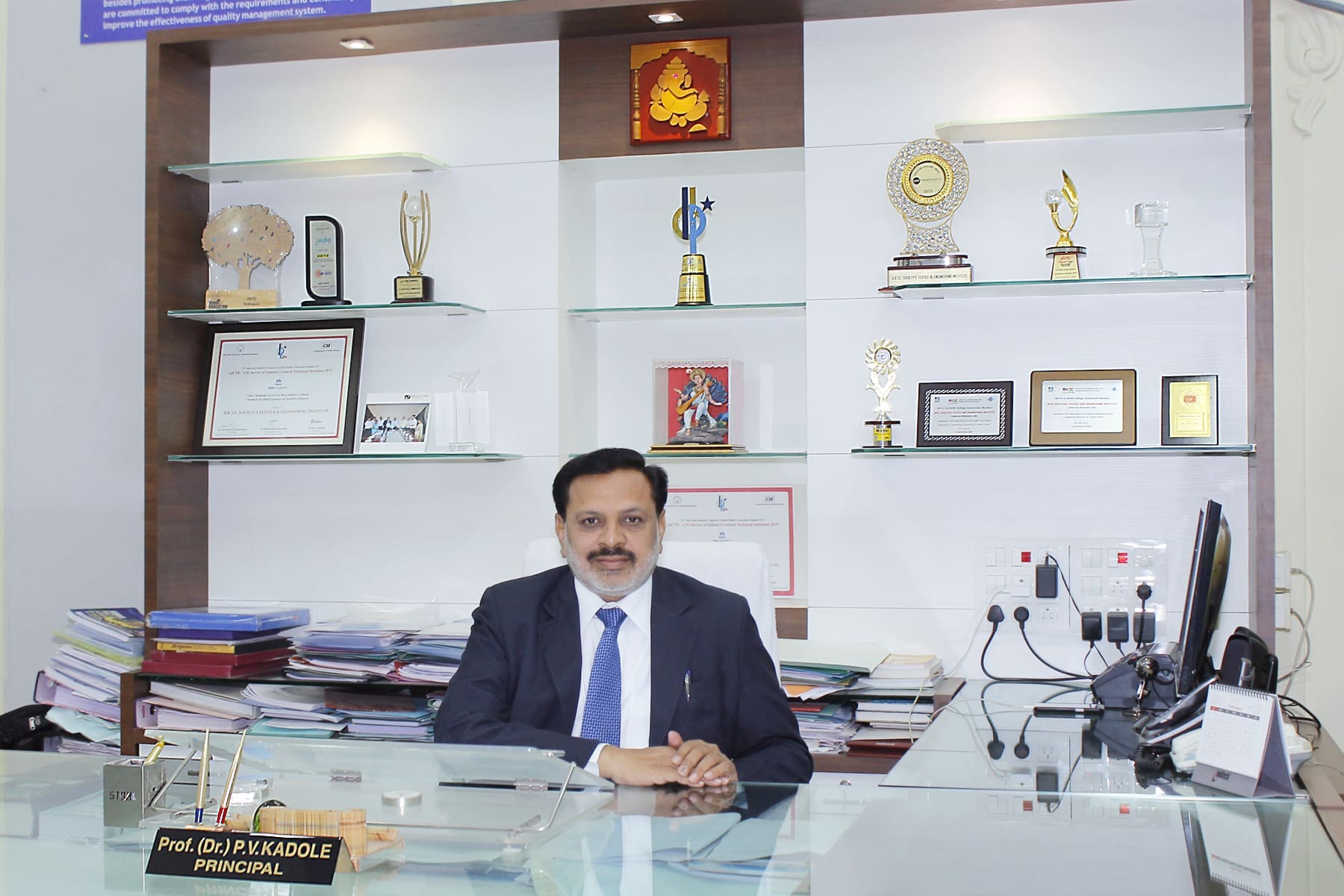Share your Education and Professional Journey.
For me, teaching is the noblest profession. Only the education can save societies and individuals from probable failure. I have been the Director of with DKTE’s Textile and Engineering Institute, Ichalkaranji, for several years and taught both, at the graduate and postgraduate level. Till date, I have guided 4 Ph.D., 24 M.Text and 54 B.Text, projects. 4 Ph.D. and 07 M.Text projects are ongoing. Currently, I am Principal Investigator/ Co-ordinator of 9 Government funded projects. Also, I am working as Chairman, The Institution of Engineers (India) Kolhapur Local Center.
I started my journey of teaching in 1990, with DKTE’sTextile and Engineering Institute, Ichalkaranji, after completing M.Tech in Textile Technology. I pursued Ph.D. in Textile Engineering in 2009. Till now, I have published 6 books, 1 book chapter, 134 papers; 59 in International journals and 75 in national level journals. I have presented 52 papers in conferences; 28 at international level and 24 at national level. Also, I had participated in various national and international level conferences to be in touch with innovative technologies in textile field. I am member of with various professional bodies such as The Textile Institute, UK., Global Engineering Deans Council (GEDC), USA, ISTE,TAI, FIE etc. I have been awarded as Best Teacher Award instituted by Rotary Club, Ideal Teacher Award by ApteWachan Mandir, Golden Educationist of India Award and Life Time Education Achievement Award by International Institute of Education & Management, New Delhi for Outstanding Achievements in The Field of Education, Best Principal Award instituted for Exploring Advances in Engineering, Life Time Achievement Award by International Organization of Scientific Research & Development and Life Time Achievement Award 2019 by Integrated Chambers of Commerce & Industry. I was also nominated for Who’s Who of the World, USA and IBC England.
As a Principal/Director of DKTE’s Textile and Engineering Institute, Ichalkaranji, I have brought many laurels to the institute like;
- Autonomous Status to the institute granted by University Grants Commission (UGC) and Shivaji University in 2016.
- Accreditation by National Assessment and Accreditation Council NAAC by getting A+ Grade with CGPA 3.53 in 2017
- National Board of Accreditation NBA has accredited 9 programs in the year 2017 and 2018
- Permanent Affiliation to all the programs has been given by Shivaji University in the Year 2015
- Received Award as Best Industry Linked Technical Institute from AICTE – CII in the nation-wide survey to assess the intensive interaction of institute with industry twice in 2015 & 2017
- Got the Award as Best Institute for Textile Engineering from Ministry of Textiles, Govt. Of India
- Because of the interaction with Textile industry and Textile Machinery manufacturing Organisations, the institute has received many State-of-the-Art machines and equipments as Gift Free of Cost from leading textile machinery manufacturers like Rieter, Trutzscler, Somet, Savio, Fongs, Then, Schlafhorst, SSM, Kirloskar Toyoda, Murata, Sulzer, Smit, Dornier, Mayer &Cie, etc.
- Brought several funded projects from various ministries, govt departments
- Consistently securing good Ranks for the institute in various surveys conducted by Magazines like CSR, HER, Silicon , EFY
- Our institute is figured amongst the Top 50 Self financed Colleges in the country, in “ATAL Ranking of Institutions on Innovation Achievements (ARIIA 2020)”, published by Ministry of Education, Government of India(Rank 33rd)
- Signed MoUs with following Foreign Universities
- North Carolina State University, USA (NCSU)
- Hochschule Niederrhein University, Germany
- Troy University, USA
- University of California Los Angeles (UCLA), USA
- The Copperbelt University (CBU), Zambia
- Eastern Michigan University, USA
- Busitema University, Uganda
- Kenyatta University, Kenya
- School of Textile Technology, Indonesia
- Chenkuo Technology University, Taiwan
- HOF University, Germany
- Technical University of Liberec, Czech Republic.
- Wuhan Textile University, China
- University of Bargamo, Italy
- Texas Tech University, USA
- Chonnam National University, south Korea
- Yeungnam University, Republic Korea
- Tennessee Tech University, USA
- Northern University Bangladesh (NUB), Dhaka, Bangladesh
- BGMEA University of Fashion and Technology (BUFT), Bangladesh
- HAFACEN, Vietnam
- Aachen University, Germany
- Saxion University, Netherlands
Being an educationist, your journey in industry life and interaction
To speak about my industrial experience, I have worked as Tech. Manager in Texto Craft, Madras and as a R & D Officer in Rajabahadur Spinning & Weaving Mills Ltd., Pune.
The interaction with the industry is phenomenal, through multiple ways. I have undergone training in different industries. Apart from providing education facilities of highest standard, I myself and our team, we are intensively engaged in research and development and providing services to the industry. We have been helping the industry in the areas of material testing, training at various levels, product and process development, and up to providing turnkey consultancy for setting up projects in the areas of spinning, weaving, knitting, chemical processing and garment making. A good number of projects setup by us are already operational and are considered as ideal projects in those areas
Due to our high standard in academics as well as research and also due to our close interaction with industry, many leading machinery manufactures from all over the world have come forward to donate their latest machines to our institute. Rieter, Trutzschler, ATE, Murata, Then, Fongs, Dornier, Smit, Staubli, Toyoda, Zinser, Savio, Promatech, Schlafhorst, ACIMIT, Pinter, SSM, KTTM, Harish-Wivita, Mayer & Cie, are amongst the prominent donors of machines to us.
These machines are useful not only for giving training to our students, but we also carry out various trials on these machines for the industry.
As a Mentor, what qualities, capabilities you choose in your PHD students?
From my point of view, the PhD aspirant must be self-directed, motivated, and highly disciplined. The candidate should have good communication, good analytical as well as managerial skills.
With the start of doctoral studies, the student must be in a position to define the research problem, with critical literature review. With good knowledge of statistical tools, the candidate should be in position to plan the work with suitable statistical model. He/she should be able to identify the strategy for experimentation and data collection. Further, the PhD scholar should have necessary skills to analyse the data, followed by drawing the conclusions. With critical thinking and writing skills the students should be capable of writing the reports and research articles. He/She should have inclination to put efforts to solve the problems in industry and society by choosing appropriate topics.
How has the industry evolved in the last few years?
The textile industry covers wide range of diversified products, right from conventional handloom to well organised industry such as spinning, weaving, knitting, processing and garmenting, with a supply chain system. The Indian textiles industry is set for strong growth, buoyed by strong domestic consumption as well as export demand. Being mass production system, large scale textile industries are capital and labour intensive. The textiles and apparel industry in India is the second-largest employer in the country providing direct employment to 45 million people and 60 million people in allied industries. The Indian government has initiated a number of export promotion policies for the textile sector. The domestic textiles and apparel industry contribute 2% to India’s GDP, 7% of industry output in value terms and 12% of the country’s export earnings. The domestic textiles and apparel industry stood at $140 bn in 2018 (including handicrafts) of which $100 bn was domestically consumed while the remaining portion worth $40 bn was exported to the world market. Further, the domestic consumption of $100 bn was divided into apparel at $74 bn, technical textiles at $19 bn and home furnishings at $7 bn. While exports comprised of textile exports at $20.5 bn apparel exports at $16.1 bn and handlooms at $3.8 bn. India has also become the second-largest manufacturer of PPE in the world. More than 600 companies in India are certified to produce PPEs today, whose global market worth is expected to be over $92.5 bn by 2025, up from $52.7 bn in 2019.(https://www.investindia.gov.in/sector/textiles-apparel)
What are the latest trends in the industry?
The COVID-19 pandemic has shaken up the entire textile industry. The demand for textile products has been decreased both in abroad and domestic market. The textile community is scared because of cash crunch, increase in raw material cost, shortage in raw material supply, supply chain disturbance and manpower-related issues. It is expected that the industry may take a much longer time to recover after the lockdown.
The major textile operations starting from cotton ginning to garment manufacturing and final market are distributed into different regions based on their locational advantageous and are connected with transportations facilities. Since the transportation systems as well as manufacturing activities are still not normalized between the different locations due to localized COVID hot spots area, movement of material is not happening smoothly and affecting entire value chain. The units having entire value chain in one place have grabbed advantage in this case and have started their operations quickly and could give final product directly to the market.
In current situation, spinning units should see for forward integration keeping demand of native/domestic market. Spinning industry is becoming non-viable day by day due to various practical reasons. Future expansion therefore, should be on value addition to final textile garments rather than spinning capacity expansion.
Views on Sustainability, Carbon footprint, Waste management
With noteworthy per capita consumption of clothing, the textile industry has huge size and scope and it is one of the largest industries in the world. Nevertheless, textile industry is one of the biggest sources of greenhouse gases on Earth and depicts significant carbon footprint, due to the type of materials used and the various processes. Carbon footprint reduction has now, become a mandate in order to protect our planet.From the point of view of sustainability, textile industry has huge scope in making a remarkable difference in terms of environmental, economic and social. Looking into this matter, corrective measures have to be initiated by the researchers and technologists to reduce carbon foot prints and load on environment.
Use of natural resources is the first solution for this problem. Energy intensive processes are required to be modified. Wherever possible, new technologies and machineries should be adopted to reduce consumption of energy, water and chemicals. Additionally, one can implement environmental management system, including corrective and preventive action plans for effective monitoring and controlling of waste and pollution levels. Recycling and reuse of the material is another effective step towards suitability. Brands can link the business to environmental and social improvements by innovative changes in raw material and production processes, by recycling the material. Producers can apply for the environmental labels such as EU Ecolabel, Blue Angel, Nordic Swan, GOTS.
In the similar lines, various initiatives are taken by industries such as Nike, H&M and many more. Reduction in show box size, effluent discharge monitoring, recycling cloth hangers, recycling and reuse of yarn are few of the business modification done by Nike. In collaboration with NASA, Nike also have designed various steps for clean production. About technical textile industry, the products such as mulch in agro textiles, pads in medical textiles, interiors in automotive textiles etc. are now being designed making use of biodegradable raw materials.PLA, the biodegradable plastics, derived from corn, fits for various application in medical textiles. To reduce the waste generation because of plastic carry bags, one of the remarkable advancements in textile industry is manufacturing of nonwoven bags made of natural fibres.
How you personally adopted sustainability in your life?
The major change over towards education in today’s COVID pandemic situation is online platforms for educating the students. This can be considered as a sustainable change in education system, what I feel is. Students can learn safely, staying at home in critical situations like today’s. Even after the students re-join the institute regularly, teachers can adopt concept of blended mode of teaching by making use of both classroom and online teaching-learning process.
How’s COVID-19 treated you and changes you feel after covid 19?
The COVID-19 outbreak has significantly affected the educational system all over the world, thus resulting in the partial and total closure of schools, colleges, and universities to control the spread of disease. As a response to this, our institute has chosen a variety of ways to continue education in these times of uncertainty.
Technical learning:
Since the educational institutions had to lock down due to the crisis, the learning process was affected and discontinued initially. However, DKTE came up with innovative ideas to conduct the classes. Considering the situation, digital learning was the only option to continue education. Faculty members of DKTE made use of communication platforms and applications such as Google Meet, Google Classroom, Microsoft Teams, Zoom, etc. to conduct lectures. They even shared videos through websites, portals, social media (like YouTube and Facebook) so that students can access them as and when required. These methods have also helped students to get acquainted with the use of new learning technology.
Tests and examinations:
Due to the sudden and unexpected emergence of the outbreak, DKTE had to postpone the mid-semester tests and term-end examinations. Before the pandemic, the written examination was the widely accepted method of assessing students. But now, as the world is moving towards digital education, our institute has also conducted online quizzes and tests using various software like Moodle, Quizes, Google quiz, etc. Multiple Choice Questions (MCQs) replaced descriptive questions. Oral examinations or viva were conducted through telephonic and video calls.
Online courses:
Since the educational institutes have been locked for students, they have ample time in their daily schedule. AICTE/UGC/MHRD has designed various online courses in the form of Swayam, NPTEL, MOOCS that allow the students to learn continuously as per their area of interest and at their own pace. DKTE has also collaborated with online course providers like Coursera to provide free courses to their students and keep them engaged in learning. These courses consist of assignments, activities, and quizzes which help the learners to track their performance and improve learning.
Webinars:
DKTE also encouraged faculty members and students to attend online webinars and interactive sessions. Many students attended the webinars which are hosted by professors, industrialists, and experienced people who showcased their ideas, work through presentations, videos, etc. The main advantage of attending the webinars is that students can raise queries and questions at any point of interaction, and they can also share and discuss their views using polls and chat box.
Exclusive Interview of Dr.P.V.Kadole, Director DKTE



